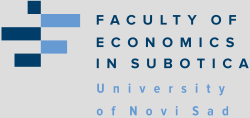ELECTRONIC COMMUNICATION AS A MEANS OF GENERATION OF CONSUMER LOYALTY
DOI:
https://doi.org/10.46541/978-86-7233-416-6_69Keywords:
eWOM, satisfakcija, lojalnost potroša?a, iskustvo, imidžAbstract
Electronic communication (eWOM) is informal communication between consumers through Internet-based technology. The sharing of information and consumer experience related to purchases and consumption through these technologies is very intensive, takes place in an extremely short time, which is why it is crucial for the reputation of a brand. Consumer attitudes that are exchanged with each other arise from their experience with the brand. That experience can be positive and negative. Passing on positive experiences is conditioned primarily by the consumer's satisfaction with the purchase and the desire to convey such impressions and feelings to other consumers, by the effort to benefit the company with which he had a positive experience, but also by the need to obtain useful information from other consumers for future purchases. On the other hand, the sharing of negative information is determined by consumer dissatisfaction with the value received, unfulfilled expectations and formed negative feelings, such as feelings of tension, stress, and even revenge. Positive information about a brand strengthens consumers' preference for repeat purchases and long-term loyalty, while negative information can induce the opposite behavior.
Based on the fact that the use of electronic communication for the purpose of building a brand image requires the acquisition of a greater number of satisfied and loyal consumers, the aim of the work is to investigate the relationship between the degree of consumer satisfaction and their tendency towards electronic communication and indirectly the influence of both variables on consumer loyalty. Propensity for electronic communication was investigated through factors that motivate the consumer to share information, such as the consumer's desire to convey acquired knowledge about the brand, convey positive/negative feelings, provide/receive advice from other consumers, express affection for the product/service or company, as and the expression of the desire to socialize in the virtual space and obtain financial incentives. The research was conducted on the territory of Serbia, using the survey method, with the help of an online questionnaire, while the results were processed in statistical software packages for social sciences SPSS and AMOS. Empirical research has shown a positive relationship between the degree of consumer satisfaction and the factors that motivate consumers to communicate electronically, but a direct relationship between electronic communication and consumer loyalty has not been confirmed. Also, through research, we have confirmed a positive relationship between satisfaction and consumer loyalty. The resulting research represents a contribution to marketing theory and practice because it agrees with existing research that confirms the positive relationship between electronic communication, satisfaction and consumer loyalty.



